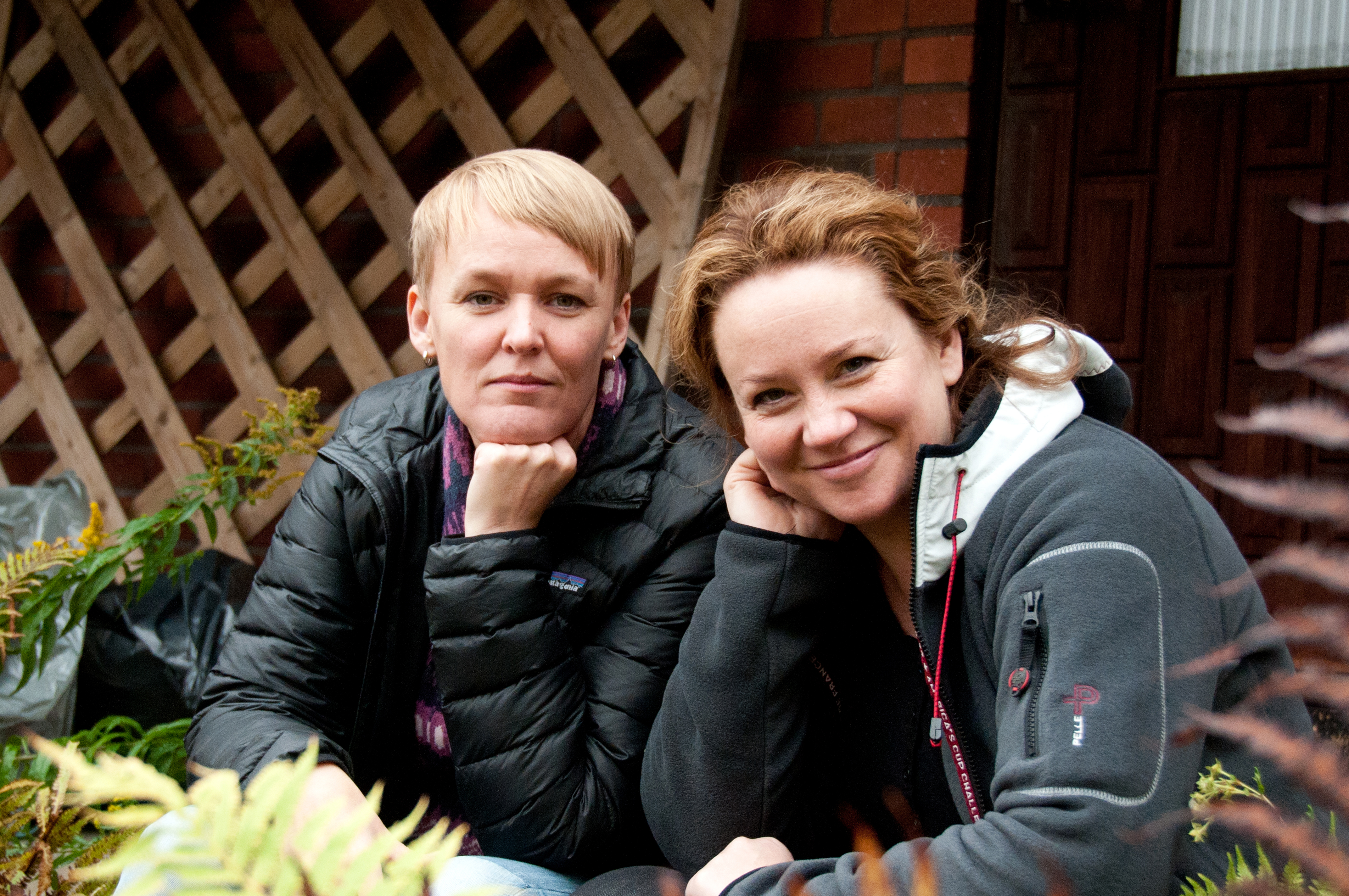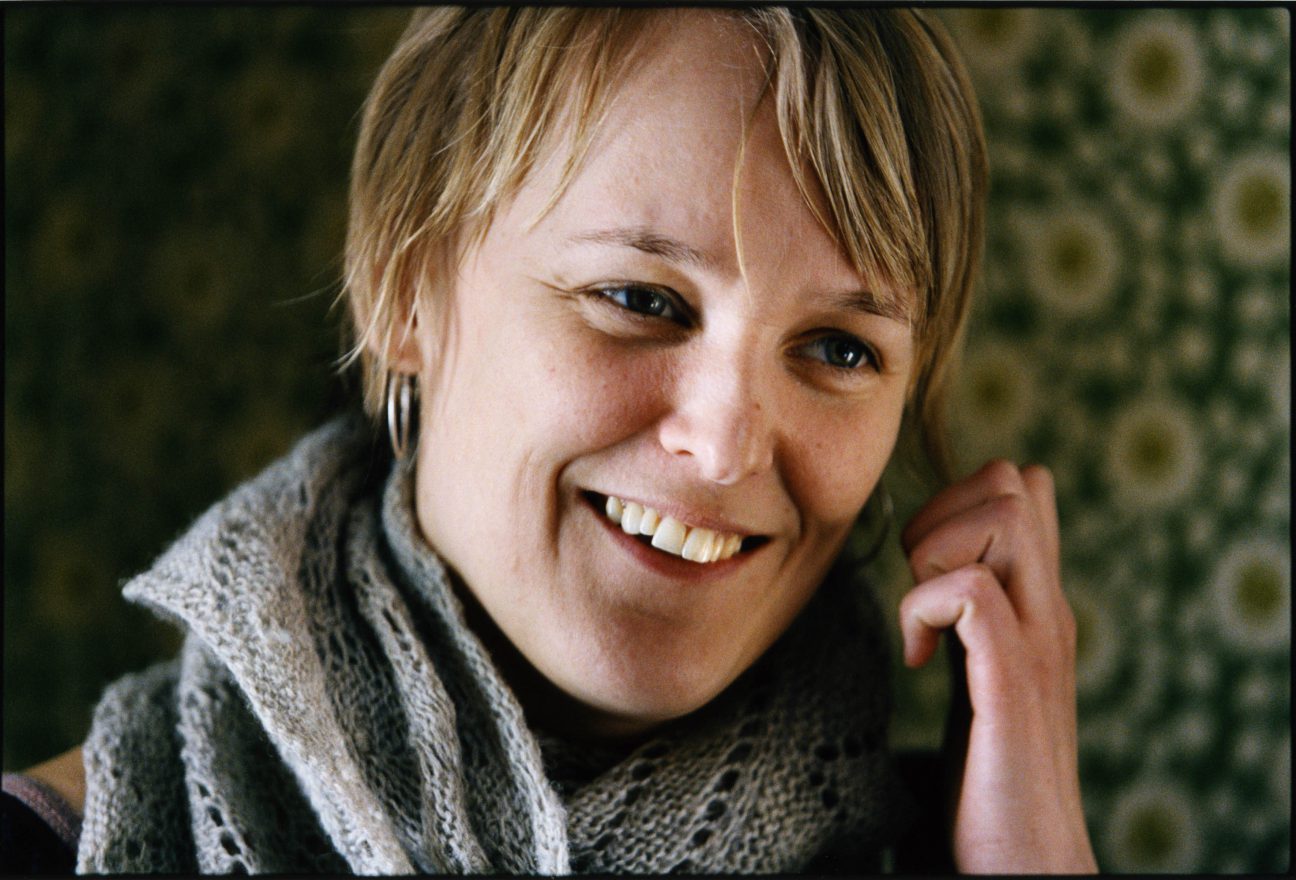Although Maria Blom grew up in Täby, north of Stockholm, she has become very much associated with her current site of residence, the province of Dalarna and the city of Falun. It all started when she released her 2004 breakthrough Dalecarlians (Masjävlar), winning Guldbagge awards for both her script writing and for best film of the year, as well as being nominated for best directing.
Before Dalecarlians was a film, it was a stage play and Maria Blom has a solid grounding in the theatre since many years back – already in grammar school there were signs of her future vocations of stage director and playwright. She has directed a number of theatre plays, among them Dr Kokos Kärlekslaboratorium (loosely, The Love Laboratory of Dr. Coconut, 1997) at Stockholm’s municipal theatre and Under hallonbusken (Under the Raspberry Bush, 2011) at the Royal Dramatic Theatre. As a child, she became a natural driving force when she created her own stage projects, and maintains that a film director needs the courage to take up space, stretch out and avoid all forms of over-analyzing.
Dalecarlians, Nina Frisk (2007) and Fishy (2008) are usually regarded as a trilogy, all three focusing on a woman leading a single life. Blom herself has written all of them, and despite being the last to be released, Fishy was really the first to be shot, already in 2002. Her decision to put this almost completed film on hold – the reason being that she preferred Dalecarlians to be her first feature – may well say something about her artistic integrity.
In HallåHallå (2014), she continues her beaten track, adding a few items of complication into the mix. Again, the protagonist is female, and she continues to be single, but with a different private life. We are also provided with a relatively explicit theme of class dynamics, also previously glimpsed in Blom’s films, as the main character Disa, an assistant nurse, questions the system that has cost one of her colleagues her job. But it’s only one of several aspects of this comically tinged story. The film won audience awards at both the Lübeck and the Hamburg film festival in 2014.
Throughout her career, Maria Blom has deducted that she prefers happy endings, and has indeed struggled with a few not entirely happy ones. Recently, she has also moved towards only directing but not writing. With the family comedy Monky (2017), she had tried out some new terrain, via a script by Anders Weidenmann and via the most expensive main character in Swedish film history, the animated monkey Monky. It’s her first family comedy and the first film where she hasn’t been involved with the script. Initially, the project was regarded as close to unrealizable, given the technique, size and scope – all of them “firsts” on Swedish soil. A 2018 Guldbagge nomination for best visual effects may suggest that the venture was rather well carried out.
Freya Kilander (2017, redigerad 2020)
(translated by Jan Lumholdt)
Basic info
Main profession: Director
Born: 1971
Active: 2004-
Links
Filmography
Regi:
Monky (2017)
Bamse och häxans dotter (2016)
Hallåhallå (2014)
Fishy (2008)
Nina Frisk (2007)
Masjävlar (2004)
Manus:
Hallåhallå (2014)
Fishy (2008)
Nina Frisk (2007)
Masjävlar (2004)
Manuskonsult:
Bamse och häxans dotter (2016)
Röstregi:
Bamse och dunderklockan (2018)
Övrig medarbetare:
Bamse och häxans dotter (2016)
Losers (2014)
Awards
2005: Guldbagge Bästa manuskript (Masjävlar)
2005: Guldbagge Bästa film (Masjävlar)
2005: Guldbaggenominerad Bästa regi (Masjävlar)

